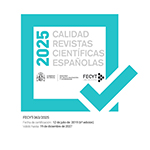Democratising intersectionality? participatory structures and equality policies in Portugal
Abstract
Scholarly work on intersectionality has shown some concern on whether this policy strategy is implemented in a participatory manner. The case of Portugal has been of particular interest since the country features a long tradition of involving civil society in the making of equality policies. This article revisits the Portuguese case in order to analyse recent developments. First, the participatory and coordinated approach adopted so far to deal with inequalities is described. Second, the analysis focuses on gender-based violence policies to help capturing new advancements. These policies have been recently enlarged to tackle the situation of women at the intersections and civil society actors have been actively involved in the policy-making process. In particular, the case of policies to combat female genital mutilation illustrates how participatory structures contribute to bring an intersectional perspective. The analysis of the Portuguese case allows thus reflecting on the potential benefits of democratising intersectionality as well as its limits.
Downloads
Article download
License
In order to support the global exchange of knowledge, the journal Investigaciones Feministas is allowing unrestricted access to its content as from its publication in this electronic edition, and as such it is an open-access journal. The originals published in this journal are the property of the Complutense University of Madrid and any reproduction thereof in full or in part must cite the source. All content is distributed under a Creative Commons Attribution 4.0 use and distribution licence (CC BY 4.0). This circumstance must be expressly stated in these terms where necessary. You can view the summary and the complete legal text of the licence.











